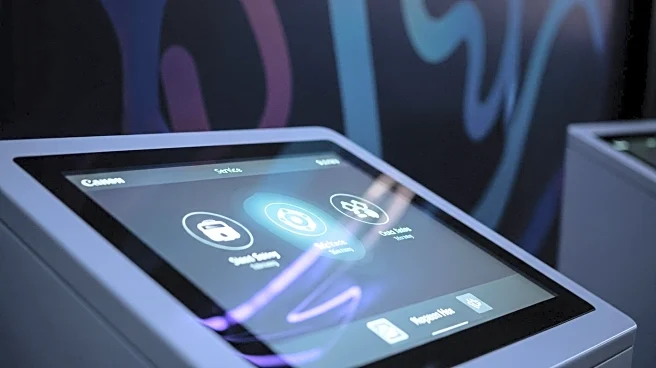What's Happening?
Oracle has introduced enhancements to its Simphony Kiosk, aimed at improving operational efficiency and customer experience across various hospitality sectors. The updated kiosks feature a modern interface integrated with point-of-sale systems, allowing businesses such as stadiums, restaurants, hotels, casinos, and cruise ships to deliver a more intuitive guest experience. The kiosks are designed to handle high volumes of orders swiftly, minimizing human error and reducing managerial intervention. Compact countertop models offer grab-and-go convenience in space-limited environments, while the dual-purpose Workstation 8 allows operators to switch between self-service and traditional order-taking.
Why It's Important?
The enhancements to Oracle's Simphony Kiosk are significant for the hospitality industry, as they streamline the ordering process and reduce customer wait times, thereby optimizing service efficiency. This technological advancement is crucial for businesses aiming to improve customer satisfaction and operational effectiveness. By minimizing human error and managerial intervention, the kiosks can potentially increase revenue and customer loyalty. The ability to switch between self-service and traditional order-taking provides flexibility, catering to diverse customer preferences and operational needs.
What's Next?
Oracle's continued focus on enhancing its hospitality solutions suggests potential future developments in self-service technology. Businesses may increasingly adopt these kiosks to stay competitive, leading to broader industry shifts towards automation and efficiency. Stakeholders, including hospitality operators and technology providers, might explore further integrations and innovations to enhance customer experiences and operational capabilities.
Beyond the Headlines
The introduction of advanced self-service kiosks raises ethical considerations regarding employment in the hospitality sector. As automation becomes more prevalent, there may be implications for workforce dynamics, requiring businesses to balance technological adoption with human employment. Additionally, the cultural shift towards self-service may influence customer interactions and expectations in hospitality settings.









